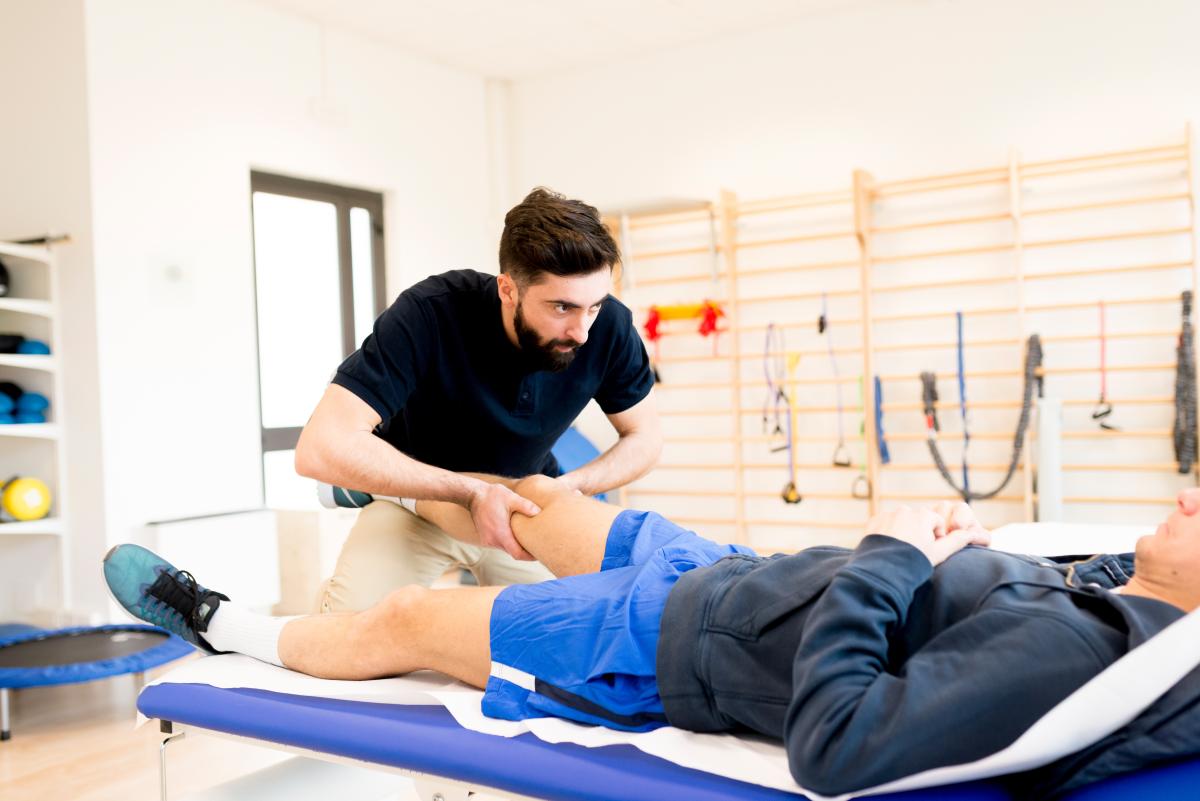Osteopathy has an important role to play in helping people to manage their health and wellbeing. It is one of 14 Allied Health Professions recognised by the NHS in England and offers a flexible and rewarding career for those interested in supporting the health, wellbeing and performance of others.
So what do osteopaths do?
Osteopaths are highly trained professionals with particular expertise in the musculoskeletal system – the muscles, joints and their relationship with other systems of the body. Osteopaths often use manual hands-on therapy to help to improve mobility, relieve tension, increase blood flow and optimise physical function.
However, osteopaths do much more than that. It is often said that osteopaths treat people, not problems. As well as the patient’s physical symptoms, an osteopath will consider other factors that could be contributing to the problem, including other biological, psychological and social factors.
Often osteopaths will develop a treatment plan that combines manual therapy with advice around exercise, diet and lifestyle.

Who do osteopaths treat?
People often visit osteopaths for back, neck, joint and muscle pain, for short-term issues such as sports injuries and for help with conditions such as migraines, headaches or digestive issues. But many patients visit osteopaths on a regular basis to help manage chronic conditions such as arthritis and to maintain their overall wellbeing. This is because osteopaths are highly people-focused, taking the time to understand every patient as an individual. Building long-lasting, health-improving relationships with patients is one of the pleasures of the profession.
Osteopaths may also work in areas such as professional sports, working to prevent injuries, improve performance and aid recovery when musculoskeletal issues occur.
"They take into consideration your lifestyle. I like the way they take time to find out about me to treat me and not just my pain." ~ osteopathy patient
Can anyone become an osteopath?
In the UK osteopathy is a regulated profession. This means that like other healthcare professionals including GPs and nurses, osteopaths need to have completed a certain level of training and must be registered with the General Osteopathic Council (the regulatory body for osteopaths) before they are legally allowed to work with patients. They must also commit to professional standards and undertake regular training to refresh their skills in order to remain on the register.
What training is involved?
In the UK you need to have completed an undergraduate degree recognised by the General Osteopathic Council, including a minimum of 1,000 clinical hours working with patients. The UCO offers three Recognised Qualification courses: our Master of Osteopathy (M.Ost) full-time undergraduate degree, our Master of Osteopathy (M.Ost) part-time undergraduate degree and our MSc in Osteopathy (Pre-Registration) postgraduate qualification. Click on the course links for more information about each of these pathways, including course structure, length, fees and entry requirements.
What career options are open to me with an osteopathy degree?
One of the great things about a career in osteopathy is the flexibility it provides. Once qualified you could take an Associate position in an existing practice or set up on your own if you wish to. Over time, many osteopaths establish their own practices and employ others to expand their services. Others work for professional sports organisations, for example as team osteopath. Some choose to work within the NHS, where osteopaths can often apply for the same positions as physiotherapists.
You may choose to work with a very broad range of patients but it is also possible to specialise or combine osteopathy with other interests – for example treating sports people, dancers, young children or even animals.
The good news is osteopathy graduates are currently in high demand and benefit from excellent employability rates.

How much will I earn?
This varies depending on where and how you choose to work. You may end up with a salaried position as an Associate or working within the NHS, but most osteopaths are self-employed, so their income is determined by how many patients they treat and what they choose to charge. The average osteopath works a 30 hour week, but others choose to work more or less than this.
The average annual income for an osteopath is £43,420, with 5% earning £100K+. The average income for a newly qualified osteopath within three years of graduating is £27,620 (Institute of Osteopathy Census 2021).
If you are able to build a good patient list and work full-time your earning potential is much higher than if you opt to work part time.
What makes a good osteopath?
Qualities that make a good osteopath include a desire to help other people, an interest in the human body, a problem-solving mind, empathy, communication skills and a passion for what you do!
View our Master of Osteopathy undergraduate degree course (full-time)
View our Master of Osteopathy undergraduate degree course (part-time)

